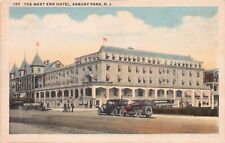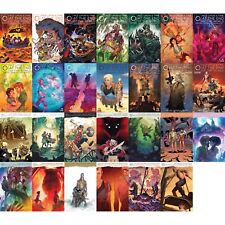"The End of Ideology" Charles Riborg Mann Signed TLS Dated 1906 For Sale

When you click on links to various merchants on this site and make a purchase, this can result in this site earning a commission. Affiliate programs and affiliations include, but are not limited to, the eBay Partner Network.
"The End of Ideology" Charles Riborg Mann Signed TLS Dated 1906:
$399.99
Up for sale a RARE! "The End of Ideology" Charles Riborg Mann Signed TLS Dated 1906.
January 25, 2011) was an American sociologist, writer, editor,
and professor at Harvard University, best known for his contributions to the
study of post-industrialism. He has
been described as "one of the leading American intellectuals of the
postwar era". His three best known works are The End of Ideology, The
Coming of Post-Industrial Society, and The Cultural Contradictions
of Capitalism. Daniel
Bell was born in 1919 in the Lower East Side of Manhattan in New York City. His parents, Benjamin and Anna originally from Eastern Europe. They
worked in the garment industry. His father died when he was eight months
old, and he grew up poor, living with relatives along with his mother and
his older brother Leo. When he was 13 years old, the family's name was changed
from Bolotsky to Bell. Bell was graduated from Stuyvesant High School. He
received a bachelor's degree from the City College of New York in
1938, and completed graduate work at Columbia University during
the 1938–1939 academic year. He received a Ph.D. in sociology from Columbia in 1961 after he was permitted to
submit The End of Ideology: On the Exhaustion of Political Ideas in the
Fifties (a 1960 essay collection), instead of a conventional doctoral dissertation. Bell
began his professional life as a journalist, being managing editor of The New Leader magazine (1941–1945), labor later, co-editor (with his college friend Irving Kristol) of The Public Interest magazine
(1965–1973). In the late 1940s, Bell was an Instructor in the Social Sciences
in the College of the University of Chicago.
During the 1950s, it was close to the Congress for Cultural Freedom.
Subsequently, he taught sociology, first at Columbia (1959–1969) and then
at Harvard until his
retirement in 1990. He was elected a Fellow of the American
Academy of Arts and Sciences in 1964. Bell also was the
visiting Pitt Professor of American History and Institutions at Cambridge University in
1987. He served as a member of the President's Commission on Technology in
1964–1965 and as a member of the President's Commission on a National Agenda
for the 1980s in 1979. Bell served on the board of advisors for
the Antioch Review, and
published some of his most acclaimed essays in the magazine: "Crime as an
American Way of Life" (1953), "Socialism: The Dream and the
Reality" (1952), "Japanese Notebook" (1958), "Ethics and
Evil: Frameworks for Twenty-First Century Culture" (2005), and "The
Reconstruction of Liberal Education: A Foundational Syllabus" (2011).
Bell received honorary degrees from Harvard, the University of Chicago, and
fourteen other universities in the United States, as well as from Edinburgh Napier
University and Keio University in Japan.
He also received a Lifetime Achievement Award from the American Sociological
Association in 1992, and the Talcott Parsons Prize for the Social Sciences from the
American Academy of Arts and Sciences in 1993. He was given the Tocqueville
Award by the French government in 1995. Bell was a director of Suntory
Foundation and a scholar in residence of the American Academy of Arts and
Sciences. Bell once described himself as a "socialist in economics, a
liberal in politics, and a conservative in culture." Bell is best known
for his contributions to post-industrialism. His
most influential books are, The End of Ideology (1960), The
Cultural Contradictions of Capitalism (1976), and The Coming of Post-Industrial
Society (1973). Two of his books, the End of Ideology and
the Cultural Contradictions of Capitalism, were listed by the Times Literary Supplement as
among the 100 most important books in the second half of the twentieth century.
Besides Bell only Isaiah Berlin, Claude Lévi-Strauss, Albert Camus, George Orwell, and Hannah Arendt, had two books so listed. In The End of Ideology (1960),
Bell suggests that the older grand humanistic ideologies, derived from the
nineteenth and early twentieth centuries, are exhausted and that new more
parochial ideologies will soon arise. With the rise of affluent welfare states
and institutionalized bargaining between different groups, Bell maintains,
revolutionary movements which aims to overthrow liberal democracy will no
longer be able to attract the working classes.

Related Items:
The West End Hotel, Asbury Park, New Jersey, early postcard, unused
$12.00
1969 SHARP Radio Color Stereo the End of Black and White Sound Vintage Print Ad
$9.95
Once Upon A Time At The End Of The World (2022) 1-14 | BOOM | COVER SELECT
$4.88



